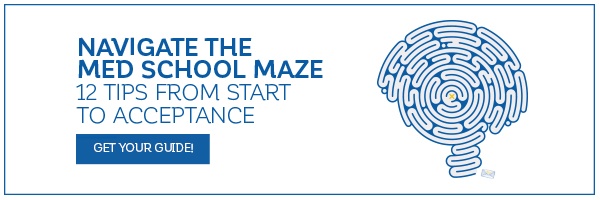
Learning how to succeed in medical school can be as challenging as being accepted. Each week you may be responsible for hundreds of PowerPoint slides, twenty hours of lecture, and multiple book chapters. Tests will require you not just to know the material, but to utilize your knowledge to integrate information in complex multiple choice questions. Memorizing information may have worked in undergrad, but we need new study habits now. Even if you skated through undergrad, chances are you will need a new set of skills to conquer med school!
1. Make a schedule. Make a daily review schedule for your next test. Each lecture or chapter should be reviewed at least once prior to the test. More challenging material should get extra review time. This may take an entire afternoon to plan out your next testing block, but it’s the first step to staying organized and prepared for all the new material!
2. Pre-read. Each night, download the next day’s presentation or book chapter, and lightly read through the information. Your goal isn’t to understand everything you read, but to be familiar with the topic so you can easily take notes tomorrow. Consider this a relaxing activity to feel more confident tomorrow during lecture. Many of your classmates will not have the will power to pre-read, but doing so will exponentially increase the value of tomorrow’s lecture.
3. Review & Reduce. Each evening, take the day’s material and create a clean, outlined version of the material. This “clean” version of your notes will become the basis of future review material. Only write down material you need, and try to cut out any extraneous information so you can streamline your studying later. I personally used two different notebooks. One notebook was ‘rough’ class notes, while the other was ‘clean’ organized study notes. Each afternoon I would reproduce my lecture notes into my organized notebook for future review and studying.
4. Organize. Use an app like Dropbox, Box, or Evernote to organize your PDFs, powerpoints, and other study material. You might be inundated with ‘study guides’ from upperclassmen trying to help, so be sure to organize these so you remember to utilize these aids when test time comes around. Organizing your notes will also help for Step 1 study preparation!
5. Take Breaks! Always give yourself time to exercise, go for walks, socialize, or other stress-reducing activities. Sitting in a library for 10 hours at a time is not good time management.
6. Evaluate. After each test, reflect on how you studied and what changes could help increase your efficiency and learning.
What works best for you? Did you find a great study technique during college or medical school? When did you realize you needed to re-evaluate your habits? Give your own helpful hints below, and be sure to let us know where you are in your medical school journey!
Evan Kuhl is a PGY-1 emergency medicine resident at The George Washington University in Washington, DC. Evan is interested in the intersection of sports and medicine, and is an avid cyclist. His website, www.evankuhl.com, includes helpful tips for pre-med and current medical students.


